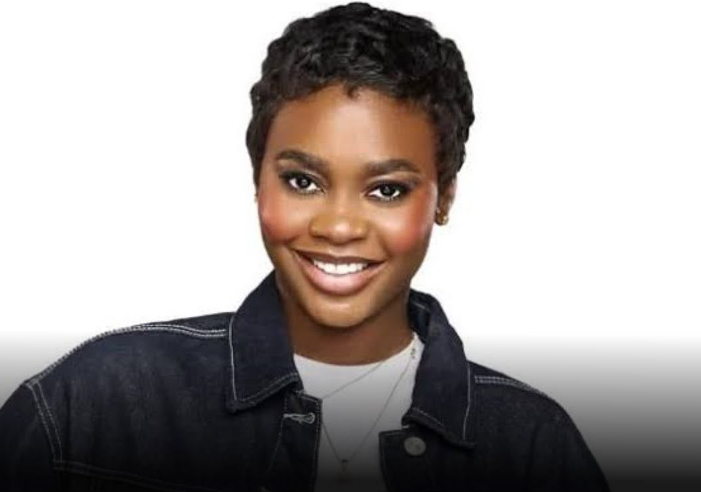
Terry G Fires Back at 'Your Time Don Pass' Critics, Cites Jay-Z and Beyoncé as Global Standard for Lasting Legacy

Nigerian singer and eccentric performer Terry G has reignited a fierce debate about the culture of discarding legends in the Nigerian entertainment industry. Taking to social media, the self-styled “Akpako Master” delivered a fiery rebuke to those who have claimed his time in the music scene has expired, asserting that in contrast to the West where icons are immortalized, Nigeria is plagued with a destructive culture of premature dismissal.
"I hear people say, 'Your time don pass!' – and it sounds like brain damage," Terry G wrote with piercing honesty. "In the West, legends are respected for life. No one calls Jay-Z or Beyoncé outdated. Their impact is honored."
In a few keystrokes, the controversial but undeniably influential artist struck a chord that resonates far beyond his personal journey. It became more than just a defense of his own relevance — it was a statement about how deeply flawed the African, and particularly Nigerian, attitude toward aging creatives has become. The public reaction was swift, mixed, and reflective of a nation caught between reverence and ridicule, tradition and trend.
Terry G’s post quickly spread across X (formerly Twitter), blogs, and entertainment circles, with many fans and industry players either supporting his take or accusing him of trying to resurrect a dying career. But whether applauded or criticized, one thing became clear — his message could not be ignored.
For over a decade, Terry G was one of the most unconventional yet magnetic forces in Nigerian music. His chaotic beats, wild performances, and unfiltered personality earned him massive street appeal and a unique place in the hall of fame of Afrobeats’ more eccentric voices. From hits like “Free Madness” to “Run Mad,” he created a niche so powerful that his name became synonymous with controlled chaos — a genre all his own.
Yet, as Afrobeats began to morph into a more globally polished sound, and newer artists emerged with cleaner aesthetics and more “exportable” brand identities, figures like Terry G slowly began to disappear from the mainstream spotlight. It wasn’t that he had lost his talent or his voice — it was that the industry and its audience were changing, and with it, their tolerance for flamboyant originality began to wane.
But Terry G’s point wasn’t about clinging to the past. In fact, he acknowledged that even the greatest will fade without continued growth. "If you don't keep adding value to yourself and those around you, your worth will fade — no matter how great you once were," he noted. This wasn’t a denial of evolution, but a critique of a system that actively encourages amnesia.
In America and across much of the West, artists like Jay-Z and Beyoncé have transcended the limitations of time. Jay-Z has evolved from street rapper to billionaire mogul, while Beyoncé has redefined performance art with every album. Their age is seen not as a liability but as a symbol of experience and excellence. They are not only tolerated — they are celebrated.
Terry G’s argument sheds light on the deeper cultural issues that explain the contrast. In Nigeria, there’s a common expression: “Na who dey reign now we go dey follow.” It reflects a society obsessed with trends, one that rarely pauses to ask what came before or who built the bridge on which the new generation is walking. Icons fade from memory as quickly as a viral TikTok challenge, and it’s a phenomenon that stretches beyond music — from Nollywood to sports to politics.
The problem, Terry G hints, isn’t merely the public’s short attention span. It’s systemic. Record labels, show promoters, award organizers, even brand ambassadors all flock to whoever is hot at the moment. There is little investment in the legacy of veterans, and even less appreciation for their continued relevance. Once an artist leaves the Top 10 chart, they are labeled “has-been” — regardless of whether they’re still producing quality work.
Many online supporters agreed with Terry G, pointing to how Nigerian legends like 2Baba, D’banj, and Sound Sultan received lukewarm recognition until nostalgia brought their music back into fleeting popularity. Some noted that even global icons like Fela Kuti had to die before being properly celebrated at home, despite being worshipped by international audiences for decades.
In Terry G’s words, “That’s why we believe our ancestors were evil, while Western ancestors are seen as gods. It's time to break free from that mindset.” This comment touches on something even more profound — the inferiority complex that continues to plague post-colonial African societies. While Western cultures invest in museums, heritage tours, and biopics to honor their legends, Nigeria barely maintains archives or historical records of its creative geniuses. Our children are taught about Mozart before they learn about Haruna Ishola or Orlando Owoh.
The ripple effects of this thinking go beyond personal careers. They influence how young artists view success. Rather than aiming for sustainability, many focus on quick fame. The idea of building a legacy is often replaced with the desperate hunt for virality. The wisdom of the old guard is dismissed as outdated, and mentorship is nearly non-existent in an industry where legends are forgotten, not followed.
Yet, Terry G’s message wasn’t all gloom. His post ended with a call to personal accountability. Yes, society must do better. Yes, fans must honor their legends. But artists too must continue to grow, evolve, and contribute meaningfully. Relevance is not a gift, it is a practice. And perhaps that’s what he’s doing — fighting back not just with words, but with intention. Refusing to fade quietly into obscurity, refusing to be another headline in the “whatever happened to…” list.
The truth is, Nigeria’s entertainment industry is rich with talent, but poor in preservation. For it to thrive long-term, the culture must shift. We must learn to treat our living legends as exactly that — legends. We must make room for the new without erasing the old. We must stop seeing the past as irrelevant and start understanding it as the foundation for the future.
Terry G may not dominate radio stations the way he once did, but his voice just sparked a conversation that many were afraid to have. And in doing so, he proved one thing loud and clear — his time hasn’t passed. It just evolved. And perhaps, just like Jay-Z and Beyoncé, it’s time Nigerians learn to honor their icons not when they’re gone, but while they’re still here, still speaking, still fighting to be heard.


